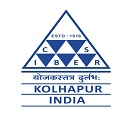Policy and Guidelines for Identification and Dealing with Allegations of Research Misconduct
CSIBER International Journal (CIJ) is committed to upholding the highest standards of academic integrity and takes all allegations of research misconduct very seriously. This document outlines the process for identifying and dealing with allegations of research misconduct, including but not limited to plagiarism, citation manipulation, and data falsification/fabrication
- Research misconduct includes but is not limited to:
- Plagiarism: Using someone else’s work or ideas without proper attribution.
- Citation Manipulation: Manipulating citations to enhance the number of citations to a particular author’s work or to articles published in a particular journal.
- Data Falsification/Fabrication: Manipulating research data with the intention of giving a false impression, including fabrication (making up data) and falsification (manipulating research processes, equipment, or data).
- Turnitin, Grammarly, toolbit and other tools will be used for plagiarism checks.
- Preventative Measures
- Editorial Checks: All submitted manuscripts will undergo initial editorial checks to detect plagiarism using plagiarism detection software.
- Reviewer Training: Reviewers will be trained to identify signs of research misconduct, such as inconsistencies in data and unusual citation patterns.
- Author Guidelines: Clear guidelines will be provided to authors regarding ethical research practices and proper citation methods.
- Reporting Allegations
- Confidential Reporting: Allegations of research gross misconduct can be reported confidentially to the editorial office via email.
- Detailed Information: Reports should include detailed information and any evidence supporting the allegation.
- Investigation Process
- Preliminary Assessment: The Editor-in-Chief (EIC) will conduct a preliminary assessment to determine if the allegation has merit.
- Formal Investigation: If the preliminary assessment suggests possible misconduct, a formal investigation will be initiated. The EIC will form an investigative committee comprising senior editorial board members and independent experts.
- Confidentiality Editors and editorial staff must not disclose any information about a submitted manuscript to anyone other than the corresponding author, reviewers, and the publisher.
- Communication with Author(s): The corresponding author(s) will be informed about the allegation and given an opportunity to respond.
- Actions Upon Confirmation of Misconduct
- Retraction: If research misconduct is confirmed, the paper will be retracted. A retraction notice will be published in the journal, explaining the reasons for retraction.
- Notification: Relevant institutions and funding agencies will be notified of the misconduct.
- Banning Authors: Authors found guilty of misconduct may be banned from submitting to CIJ for a specified period.
- Appeals Process
- Right to Appeal: Authors have the right to appeal decisions made by the investigative committee.
- Appeal Review: An appeal will be reviewed by an independent panel not involved in the initial investigation.
- Appeal Review: An appeal will be reviewed by an independent panel not involved in the initial investigation.
- Public Records: Retractions and corrections will be clearly indicated in the journal.
- Annual Reports: An annual report on the cases of misconduct and the outcomes will be prepared and made publicly available.
- Responsibilities of Editors and Reviewers
- Editors: Editors shall not encourage or knowingly allow misconduct to take place. They are responsible for taking reasonable steps to identify and prevent the publication of papers where misconduct has occurred.
- Reviewers: Reviewers are encouraged to report any suspicion of misconduct they detect during their review process.


